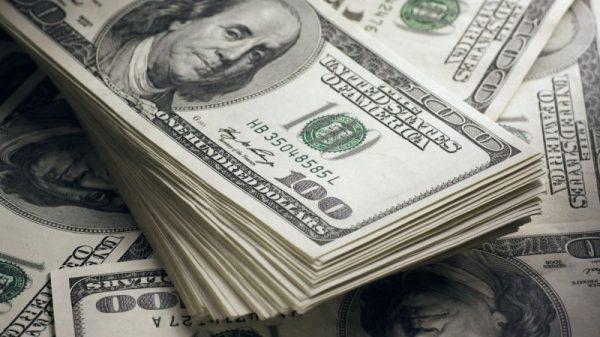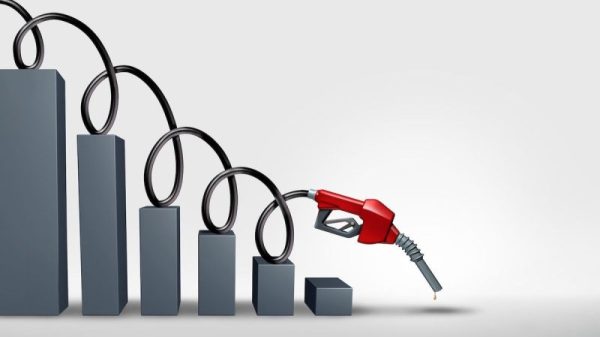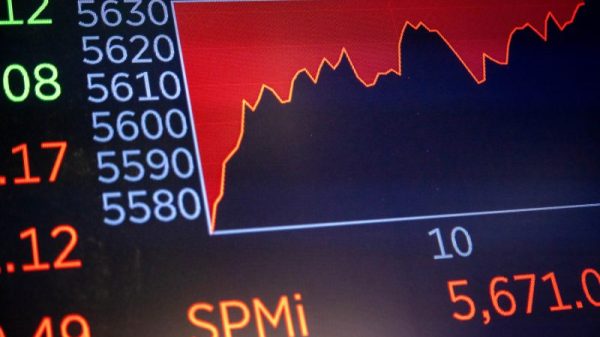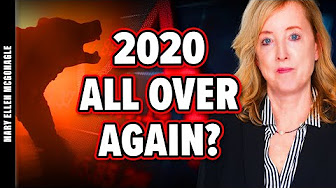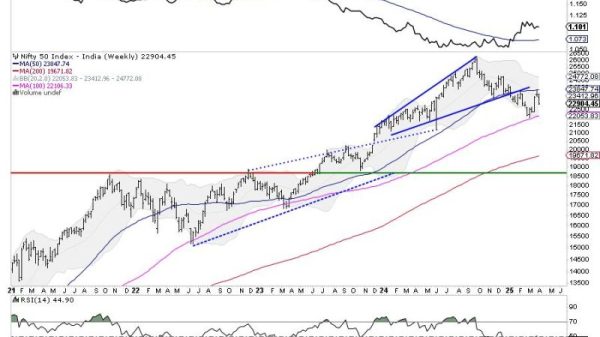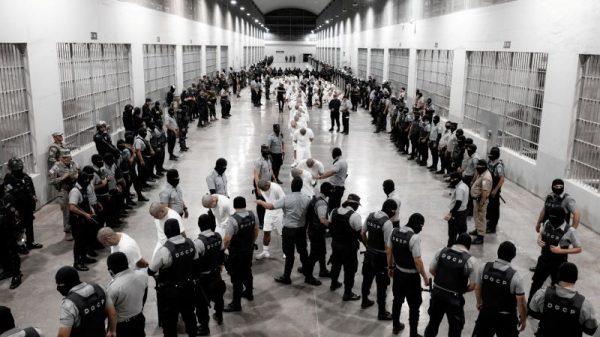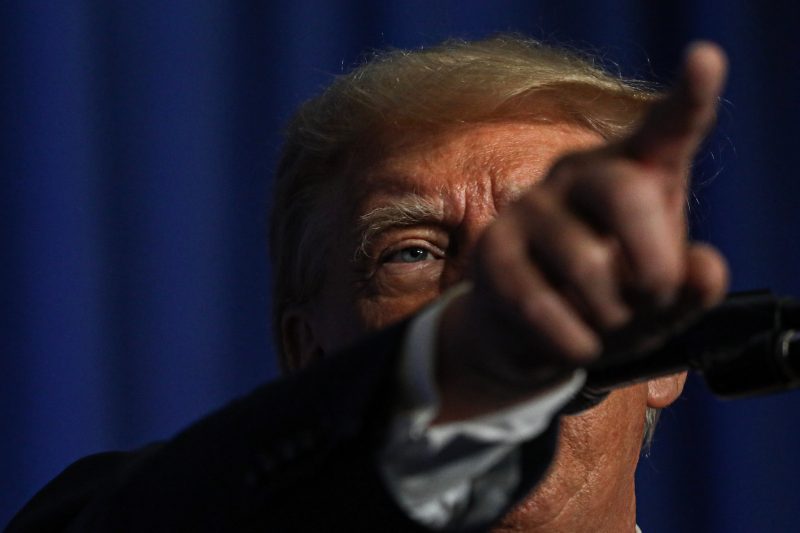An hour before the public release of an indictment that alleges the former president of the United States led a criminal conspiracy to overturn the results of a national election, Donald Trump was already on the offensive.
The Georgia prosecutor who aimed to put him in prison was a “rabid partisan,” part of “a dangerous effort by the ruling class to suppress the choice of the people,” Trump’s campaign announced. Not 12 hours after he was indicted Monday by a Fulton County grand jury, Trump declared on his Truth Social platform that he will hold a “major news conference” next Monday to reveal “A Large, Complex, Detailed but Irrefutable REPORT” on his disproven election fraud claims that he vowed would lead to “a complete EXONERATION!”
The fourth felony indictment this year of the nation’s 45th president produced not a hint of humility or regret. Rather, Trump reverted to the playbook that has guided his actions through six decades of investigations, lawsuits, bankruptcies, impeachments and titanic waves of allegations of wrongdoing. He went on the attack, taking the battle to his most comfortable venue, the public square.
Conceding error or seeking a compromise was never in the cards — not now and not at any point in Trump’s long life of huge successes, frequent failures and endless public drama.
“He was always, ‘Fire a gun at me, and I’ll drop a nuclear bomb on your head,’” recalled Barbara Res, an engineer and attorney who ran Trump’s construction operations in the 1980s and is now a sharp critic of her former boss. “It was always, ‘We’re going to sue’ whoever he thought was against him. He enjoyed it. He liked to make people suffer.”
Trump himself has described his way of responding to adversity in blunt terms: “I’m a counterpuncher,” he told Fox News’s Megyn Kelly in 2016. “I then respond times maybe 10. … I mean, I respond pretty strongly.”
Even when he knows he did something wrong, Trump said, “you have to go forward. And, you know, you can correct a mistake, but to look back and say, ‘Gee whiz, I wish I didn’t this or that,’ I don’t think that is good, and I don’t think in a certain way that is healthy.”
What counts as healthy for someone facing 91 felony allegations, four criminal trials and a host of civil proceedings varies from person to person, but Trump is the rare figure who has lived his life driven by the conviction that the proper response to, say, the threat of imprisonment is a frontal assault on the people in charge of determining his future.
Trump has long said he lives by two hard and fast rules: Never back down, his father, Fred Trump, taught him. And always hit back, 100 times as hard as you got hit, his lawyer and mentor Roy Cohn taught him. Never retreat, never apologize.
Or, as he put it to Jimmy Fallon on NBC’s “Tonight Show” in 2015, “I fully think apologizing’s a great thing, but you have to be wrong. … I will absolutely apologize, sometime in the hopefully distant future, if I’m ever wrong.” The crowd and the host roared with laughter.
Trump has made a career of saying the outrageous things out loud. From “Lock her up!” to “Crazy Joe Biden” to the latest labels he has attached to the prosecutors who have charged him — calling special counsel Jack Smith “deranged,” Manhattan District Attorney Alvin Bragg an “animal,” and Fulton County District Attorney Fani T. Willis a “racist” — Trump has long ignored admonitions from judges and his own lawyers to lower the temperature.
“IF YOU GO AFTER ME, I’M COMING AFTER YOU!” the former president posted on Truth Social earlier this month.
After Trump posted his all-caps threat, the federal judge in the case in Washington, Tanya S. Chutkan, rejected his lawyers’ contention that, as a presidential candidate, Trump needed complete freedom to speak his mind. “He can’t say exactly what he wants to say about witnesses in this case,” nor can he seek to prejudice potential jurors at his trial, she said, ordering Trump and his lawyers to take “special care” with their public comments or she would “take whatever measures are necessary” to ensure the integrity of the trial.
Very little in Trump’s life is etched in stone; he has always taken pride in his ability to pivot and in his skepticism about ideology and principles. He views himself as a master improviser, so he changed his party registration seven times — Democrat, Republican, Reform Party, independent and back again — before he finally ran in 2016 as a Republican. He was for abortion rights, and then he was opposed.
What stays the same, however, are the personality traits and acquired attitudes that add up to the combative, roguish, outsider approach that makes him anathema to people inside the system and attractive to those who feel they’ve been excluded from it.
A big part of that renegade personality is Trump’s willingness — no, his eagerness — to slam and destroy anyone he perceives as an attacker.
“It is 100 percent deliberate,” Res said. “He’s trying to scare whoever is coming after him. He always believed no one could touch him because he’d attack them publicly.”
Trump and his businesses filed more than 1,900 lawsuits over the course of three decades before he entered politics. He sued people who questioned his wealth or even his taste. He once filed a $500 million defamation suit against a Chicago Tribune critic who had described his Trump Tower on New York’s Fifth Avenue as a “kitschy shopping atrium of blinding flamboyance.” A judge dismissed the complaint.
As a child, Trump got into trouble so often that his father finally put his foot down. According to Washington Post interviews with Trump’s childhood friends in 2016, the last straw was Fred Trump’s discovery that Donald and his friend Peter Brant had secretly been sneaking across the bridge from their Queens home to Manhattan on Saturdays. Hungry for autonomy, the boys explored Central Park, gawked at Times Square panhandlers and savored egg creams at diners. They went to see “West Side Story” on Broadway; inspired by its portrayal of street gangs, they cooked up a game they called “Land,” in which they traded turns throwing switchblades into the ground and twisting their bodies to mimic the knives’ flight paths.
When Fred Trump found out about the knives, Donald admitted nothing, maintaining his innocence. The father decided his son needed a radical change. He pulled Donald, then in eighth grade, out of his Queens private school and shipped him off to New York Military Academy, a boarding school near West Point known for strict discipline.
By 1973, when Trump, then 27, crossed the bridge into Manhattan to launch his own real estate business, beyond the outer-borough limits of his father’s realty empire, he was eager to join a higher social echelon. He joined Le Club, a members-only nightspot frequented by social climbers and political and business leaders. There, he met Cohn, a storied figure in New York who had prosecuted Julius and Ethel Rosenberg as Soviet spies and served as Sen. Joseph McCarthy’s right-hand man during the anti-communist witch hunts of the 1950s.
Cohn took a shine to Trump, who sought the older man’s counsel: Federal prosecutors had filed a racial discrimination suit against the Trumps, and Donald wanted to know if he and his father should take the government’s offer to admit wrongdoing and settle the case.
No way, Cohn advised. “Tell them to go to hell and fight the thing in court,” he said — and counterattack with bias accusations against the prosecutor who was handling the case, and then countersue the Justice Department. The advice, which Trump recounted in his book, “The Art of the Deal,” reminded Trump of his father’s admonitions throughout his childhood to never retreat, to hit back harder than you’ve been hit, and above all, to never be a loser.
Trump did as Cohn suggested and still was forced to settle with the government. But he came to depend on Cohn — for legal advice and for the tactics that would from then on define Trump’s approach to business: Never admit fault. Never express regret. When criticized, hit back 10 times as hard. Use the news media to attack and thereby build your personal brand.
Trump saw from even before his 2016 campaign began that social media had helped segregate the nation into cultural camps. As a candidate, Trump blasted the country with a torrent of frustration and hate — the kind of angry talk that many people had only spewed anonymously or among close friends and relatives.
Trump’s impulsiveness, quickness to hit back when criticized and tendency to lash out at enemies morphed into a verbal barrage that proved to be catnip to voters who scanned the political landscape and saw in other leaders only inauthenticity and inaction.
In the 2016 election, Trump sensed that his outrageous behavior and readiness to fight back cemented his reputation — honed for many Americans on his reality TV show, “The Apprentice” — as a decisive truthteller who gets things done. He had spent almost 40 years cultivating an image as a guy so rich, so enamored of himself, so audacious and unpredictable that he would take action no matter what the powers that be said.
“I think he has such an ego, he couldn’t stand to fail,” Mary Vesley, a Trump voter in Mechanicsville, Va., said on Election Day of Trump’s first run. What might be a disqualifying fault in a more traditional candidate was, to Vesley and many others, a warranty that Trump would stay on the attack regardless of what the elites threw at him.
True to his promise, Trump did not apologize after he called Haiti and African nations “shithole countries.” Nor when he slammed Sen. John McCain, the late Republican from Arizona, as a “loser” who could not be a war hero “because he was captured” in Vietnam.
Even his rare admissions of wrongdoing are often diluted with a dose of mischievous doubling down on the original misdeed. When Trump retweeted a description of Fox’s Kelly as a “bimbo,” and Kelly confronted him over the incident, Trump in mock horror said, “Oooh, okay, excuse me,” and then added, “you’ve been called a lot worse.”
As president, Trump would not cleanly denounce the antisemitic, white-supremacist marchers who in 2017 terrorized Charlottesville. Instead, he condemned “this egregious display of hatred, bigotry and violence on many sides, on many sides.”
Two days later, he seemed to back down, repeating the same condemnation but without the “on many sides” bit. But the next day, at a news conference, Trump reapplied his time-tested formula of insult, grudging apology and doubling down: “I think there is blame on both sides. … Nobody wants to say it, but I will say it right now.”
Then, as now, the country’s standard tools for addressing excesses and misdeeds not only failed to diminish Trump’s appeal, but also seemed to enhance the loyalty his followers felt toward him. Publicity, political opposition, the marshaling of facts and now a flood of legal actions — all seemed only to strengthen his bond with his core supporters.
Trump ran in 2016 against accusations that he’d groped, insulted and acted boorishly toward women, and that, too, made little if any difference. The day after The Post revealed video showing Trump explaining how he would grab women by the crotch, a Trump supporter in Syracuse, N.Y., Shannon Barns, said the video had only deepened her belief that he should be president.
“This just put a human face on the guy for me,” she said. “I was worried that he was a billionaire and didn’t know about the lives of people like me. This showed me that he’s a man. You know in your heart every man talks like that.”
As a novice candidate, Trump promised that, if elected, he would suddenly act more “presidential,” reining in some of the rhetorical excesses that his advisers were telling him would be inappropriate for a chief executive. But when a federal judge in San Diego handling class-action lawsuits against Trump’s for-profit college ordered the release of documents detailing predatory marketing practices by Trump University, Trump lashed out at the Indiana-born judge, who is of Mexican American descent, calling him a “Mexican” and a “hater.”
Amid the firestorm of controversy over that attack, Trump turned to another set of advisers who would “let Trump be Trump,” as the candidate put it.
Once in office, Trump quickly made it clear that he would for the most part stick to the style that got him to the White House.
Two weeks into his term, when another federal judge, James Robart, blocked Trump’s executive order banning immigration from seven mostly Muslim countries, the new president denounced Robart as a “so-called judge.”
Trump always saw publicity as his best defense against investigations and allegations of wrongdoing, Res said, and he always relished using the courts against those he believed had insulted or hurt him. In 2005, when Timothy O’Brien, then a New York Times reporter, wrote a book revealing that Trump’s net worth was not the $4 billion or $5 billion he claimed, but rather “somewhere between $150 million and $250 million,” Trump sued the author for $5 billion.
Then, after a court dismissed Trump’s suit and a higher court rejected his appeal, Trump called the author “a low-life sleazebag” and told The Post that he enjoyed suing O’Brien “because I cost him a lot of time and a lot of energy and a lot of money.”

